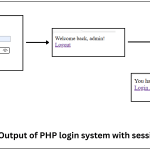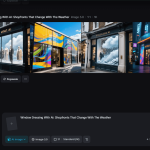Turning Browsers into Buyers: The Power of Product Quizzes
E-commerce faces a massive problem that costs billions annually: converting visitors into customers. Despite fancy marketing and beautiful product displays, most potential buyers leave without buying. Product recommendation quizzes have become the solution to this ongoing problem.
Why Do Online Shoppers Abandon Their Carts Before Buying?
The stats are scary. According to Baymard Institute’s research, 70.19% of shopping carts are abandoned before completion. That’s $18 billion in lost revenue across all industries every year.
Why Do Customers Struggle With Too Many Choices?
Choice overload creates a psychological barrier that prevents decision-making. When faced with hundreds of similar products, customers experience what researchers call “decision fatigue.” This mental exhaustion leads to three common outcomes:
- Postponing the purchase indefinitely
- Choosing a competitor with clearer guidance
- Abandoning the shopping process entirely
The modern consumer wants personalized guidance, not endless scrolling through product catalogs. Traditional e-commerce sites fail to provide the human touch that physical stores offer through knowledgeable sales assistants.
How Does Decision Paralysis Impact Revenue?
Research from multiple studies reveals the financial impact of poor customer guidance:
- 48% of cart abandonment stems from unexpected costs at checkout
- 24% of customers abandon purchases when forced to create accounts
- 18% leave due to complicated checkout processes
These statistics demonstrate that customers want simplicity and guidance, not additional friction in their buying journey.
What Exactly Is a Product Recommendation Quiz?
A product recommendation quiz is like a digital sales consultant, guiding customers through strategic questions to find their perfect product match. Unlike static product pages, these interactive tools create personalized shopping experiences that address individual needs and preferences.
The quiz methodology is to collect customer data through questions, then analyze the answers to recommend products that match specific requirements. This turns the overwhelming task of product selection into a guided fun experience.
How Do Product Quizzes Transform the Shopping Experience?
Product recommendation quizzes revolutionize e-commerce by addressing three fundamental customer needs:
- Simplification: Reducing hundreds of options to a curated selection
- Personalization: Matching products to individual circumstances
- Confidence: Providing reasoning behind each recommendation
This transformation creates a win-win scenario where customers receive better product matches while businesses increase conversion rates and customer satisfaction.
How Well Do Product Recommendation Quizzes Convert Visitors?
The quiz data shows amazing conversion improvements. According to Interact’s 2025 Quiz Conversion Rate Report, the overall conversion rate when people start a quiz is 40.1%, that’s 4 out of 10 visitors become leads.
What Conversion Rate Improvements Can Businesses Expect?
E-commerce businesses implementing product quizzes typically see substantial performance gains:
- Conversion rates increase from 2% to 5% (150% improvement)
- Average order value rises by 20% due to better product matching
- Completion rates average 65% for quiz participants
- Lead capture rates reach 31.6% according to industry data
These improvements compound over time as businesses refine their quiz questions and recommendation algorithms based on customer feedback and behavioral data.
What Kind of Results Can You Get With a Quiz?
Vitday, a supplement company, is a great example of a well-executed product recommendation quiz. Their health and wellness quiz helps customers find the right supplements based on health goals, lifestyle, nutrition and medical conditions.
Their impressive results include:
- 503,394 total quiz participants (1 year term)
- 88% completion rate (significantly above industry average)
- 2.5x higher conversion rate compared to standard store performance
- 360,279 customer email profiles collected for ongoing marketing
These numbers demonstrate how quizzes can simultaneously improve customer experience and build valuable marketing databases.
How Do Businesses Design Effective Product Quizzes?
Creating a good quiz requires strategic planning and customer focused design. The best quizzes balance information gathering with user engagement, so customers stay engaged throughout the experience.
What’s The Optimal Quiz Length?
Research from multiple quiz platforms shows that the sweet spot is between 5 to 10 questions. This gives enough data for meaningful recommendations and keeps customers engaged. According to Octane AI’s optimization research, quizzes with more than 10 questions see a big drop in completion rates.
Key length considerations include:
- 5-7 questions: Ideal for simple product categories
- 8-10 questions: Appropriate for complex or technical products
- Visual elements: Images and GIFs improve completion rates by 20%
Which Question Types Generate the Most Valuable Customer Data?
Effective product quiz questions combine lifestyle preferences with product-specific requirements. The most successful quizzes follow a strategic sequence that builds customer engagement while gathering essential recommendation data.
High-performing question categories include:
- Lifestyle and usage patterns: “How often do you exercise?”
- Budget and value preferences: “What’s your target price range?”
- Specific needs and goals: “What’s your primary fitness objective?”
- Experience level: “How would you describe your expertise?”
This question mix creates comprehensive customer profiles that enable accurate product matching and valuable market research insights.
How Do Businesses Maximize Quiz Performance and ROI?
A successful quiz is not just about the initial launch. Top performing businesses continuously optimize their quizzes based on performance data and customer feedback.
What Metrics Indicate Quiz Success?
Monitoring key performance indicators enables businesses to identify optimization opportunities and measure their return on investment. According to RevenueHunt’s metrics research, successful quizzes maintain completion rates around 90-100%.
Essential tracking metrics include:
- Start-to-completion ratio: Percentage of quiz starters who finish
- Quiz-to-purchase conversion: Rate of quiz completers who buy
- Average order value: Purchase amounts from quiz-generated sales
- Email capture efficiency: Percentage providing contact information
Regular analysis of these metrics reveals optimization opportunities and validates the effectiveness of the quiz.
How Do Advanced Features Help?
Advanced quiz platforms have features that improve both user experience and business results. Integration with existing e-commerce and marketing systems means customers can flow from quiz completion to purchase and beyond.
Performance-enhancing features include:
- Dynamic question branching: Tailoring subsequent questions based on previous answers
- Real-time recommendation engines: Instant product matching using AI algorithms
- Multi-channel integration: Connecting quiz data with email, SMS, and retargeting campaigns
- Advanced analytics: Detailed reporting on customer segments and preferences
These features transform simple quizzes into comprehensive customer intelligence and conversion optimization systems.
What Future Developments Will Shape Product Quizzes?
The evolution of product recommendation quizzes continues accelerating with advances in artificial intelligence and customer experience technology. Forward-thinking businesses are already implementing next-generation quiz features that provide even more personalized and effective customer guidance.
How Is AI Improving Quiz Personalization?
Machine learning algorithms now analyze customer responses in real-time, adjusting question sequences and recommendation logic based on individual behavior patterns. This dynamic approach creates more engaging experiences while gathering higher-quality customer data.
AI-driven improvements include:
- Predictive question optimization: Showing the most relevant questions first
- Behavioral analysis: Understanding customer intent beyond explicit answers
- Cross-platform personalization: Using quiz data across all customer touchpoints
What’s Emerging?
The future of product quizzes is seamless integration with the broader customer experience. Successful businesses are connecting quiz data to customer service, inventory management and product development. This means quizzes go from being a conversion tool to a business intelligence platform that informs decisions across multiple departments.
Frequently Asked Questions
Do product quizzes actually reduce cart abandonment?
In general, yes—but not in the way you might think. Quizzes don’t prevent all abandonment, but they help ensure that people who do add items to their cart are adding the right items. That leads to higher conversion rates and fewer returns.
What if someone games the system to get a discount or freebie?
Some will, but it’s usually a tiny percentage. Most people who take the time to complete a thoughtful quiz are genuinely interested in finding the right product. Focus on making the quiz valuable for legitimate customers rather than preventing edge cases.
How do I know if it’s working?
Track the basics: completion rate, conversion rate from quiz to purchase, and average order value. But also pay attention to softer metrics like return rates and customer satisfaction scores. A good quiz should improve all of these over time.
Can product quizzes work for B2B?
Absolutely. If anything, B2B buyers often have more complex needs and longer research processes. A well-designed quiz can help qualify leads and provide your sales team with much better information about what prospects actually need.



